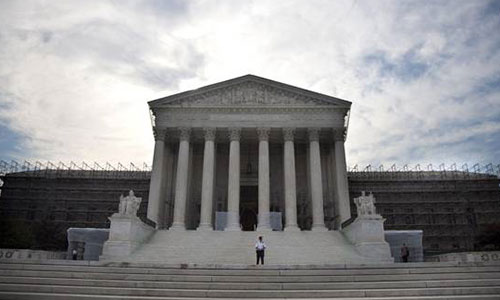
The Supreme Court upheld Michigan’s prohibition on race conscious admissions policies at public universities Tuesday, reversing a lower court decision that had struck down the ban on equal protection grounds.
The vote was 6-2 with Justice Elena Kagan taking no part in the decision presumably because she dealt with the issue in her previous job as Solicitor General in the Obama administration.
The case concerned a ballot initiative called “Proposal 2” that passed in 2006 with 58 percent of the vote. The proposal said Michigan "shall not discriminate against, or grant preferential treatment to, any individual or group on the basis of race, sex, color, ethnicity, or natural origin."
Michigan’s Solicitor General John J. Bursch defended the ballot initiative, telling the Justices, “The issue in this case is whether a Michigan constitutional provision requiring equal treatment violates equal protection.” Michigan went to the Supreme Court after the Sixth Circuit Court of Appeals struck down the law.
Writing for the majority, Justice Anthony Kennedy said, "This case is not about how the debate about racial preferences should be resolved. It is about who may resolve it. There is no authority in the Constitution of the United States or in the Court’s precedents for the Judiciary to set aside Michigan’s laws that commit this policy determination to the voters."
Kennedy reiterated that the Court left undisturbed the principle that the consideration of race in admissions is permissible, provided certain circumstances are met. He said the case is “not about the constitutionality, or the merits, or race conscious admissions policies in higher education.”
Justice Sonia Sotomayor wrote a scathing dissent joined by Justice Ruth Bader Ginsburg, saying in part, "By permitting a majority of the voters in Michigan to do what our Constitution forbids, the Court ends the debate over race-sensitive admission policies in Michigan in a manner that contravenes constitutional protections long recognized in our precedents.”
Sotomayor noted that voters in Michigan could have used other means to eliminate the use of race-sensitive admissions policies such as "individual or grassroots lobbying efforts, or through general public awareness campaigns."
Seven other states have similar bans: Arizona, California, Florida, Nebraska, New Hampshire, Oklahoma and Washington State. Forty-two states still use a wide array of racial preferences in college admissions.
#y101fm #y101tops
